Donor Qualification

Hemoglobin
The minimum acceptable hemoglobin level to be able to donate whole blood is:
- 130 g/L or 13.0 g/dL for men;
- 125 g/L or 12.5 g/dL for women.
If your hemoglobin level is below these limits, you should avoid donating blood until your doctor determines the exact cause of your low hemoglobin and confirms that your level has returned to normal.
Note that some people have a hemoglobin level below the minimum acceptable limit for donating blood without it indicating a health problem.
There is a program to allow women from the black community to donate blood despite a hemoglobin level below the minimum limit. If you are part of this community, contact Donor Services for more information: 1-800-847-2525 or see the page Black women and blood donation.
Frequently asked questions
Hemoglobin is the main protein in red blood cells. It carries oxygen to the tissues, and iron is needed for producing it. Anemia is the term used when the hemoglobin level is low.
A test measures the amount of hemoglobin in a single drop of blood taken by a fingertip prick.
Before each blood donation, we check that your hemoglobin level is sufficient to allow you to donate blood without the risk of becoming anemic.
It is important to see your doctor to determine the exact cause of your low hemoglobin, especially if this is your first blood donation.
Several factors can cause the hemoglobin level to be low:
- A technical problem during the test. Our test sometimes detects a low hemoglobin level, when it is later found to be normal when checked by the donor’s physician.
- Some people have hemoglobin below the minimum acceptable limit for donating blood without it indicating a health problem.
- If you are a frequent whole blood donor (i.e. three or more donations per year for men and two or more donations per year for women), it is possible that these donations caused a sufficient drop in your iron reserve to cause anemia. If you are a frequent blood donor, it is important to mention it your doctor. Iron supplements may be right for you. In most cases, donations by apheresis (platelets or plasma) do not cause anemia. However, for frequent platelet donors, the collecting of blood samples required at each donation and the loss of red blood cells associated with the procedure could result in iron loss.
- You may have bleeding not associated with blood donations that results in a decrease in your hemoglobin (e.g. heavy menstruation, digestive bleeding). Depending on your symptoms, your doctor can do the necessary investigations to determine if this is the case for you.
- Your diet may be iron deficient. If this is the case, your health care professional can advise you for rectifying the situation. See our explanatory leaflet Sources of iron-rich foods for more information.
- 6.Finally, other more rare causes can lead to anemia. Your doctor will be able to confirm if this is the case for you by doing the appropriate tests.
For more information, contact our Donor Services at 1-800-847-2525.
To increase your hemoglobin:
- Opt for an iron-rich diet.
- Ask your doctor or pharmacist for advice for considering the use of iron supplements.
Learn more
See the page Blood donation and iron reserve
- Child birth/Breast-feeding/Pregnancy

- Acupuncture/Electrolysis

- Age

- Allergies

- Cancer

- Cholesterol

- Dentist

- Diabetes

- Drugs
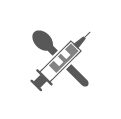
- Iron
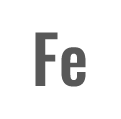
- Hemoglobin

- Sore throat

- Creutzfeldt-Jakob Disease

- Body piercing/Tattoos

- Tick bite

- Weight

- Medication
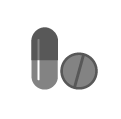
- Sexual relations

- Cold

- Trali (Transfusion-Related Acute Lung Injury)
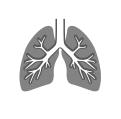
- Vaccinations
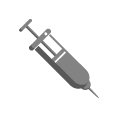
- Travel

- For more information, please contact our Donor Services at: 1 800 847.2525
